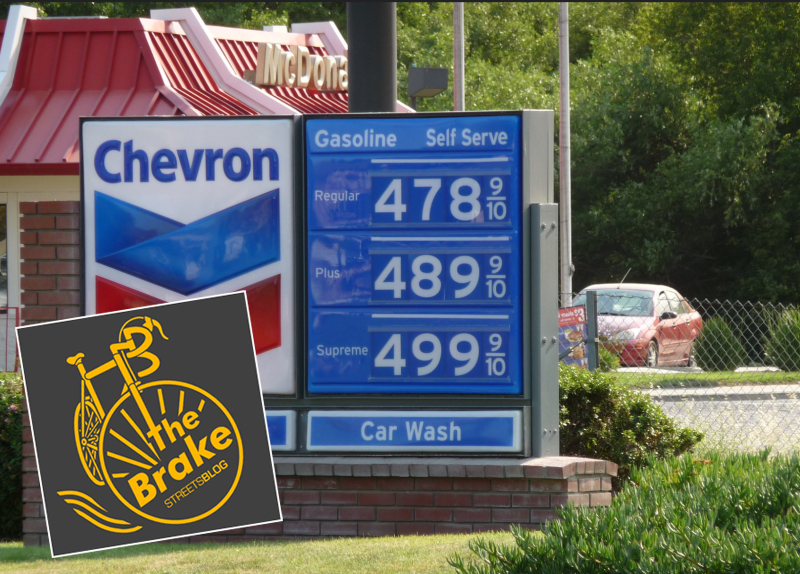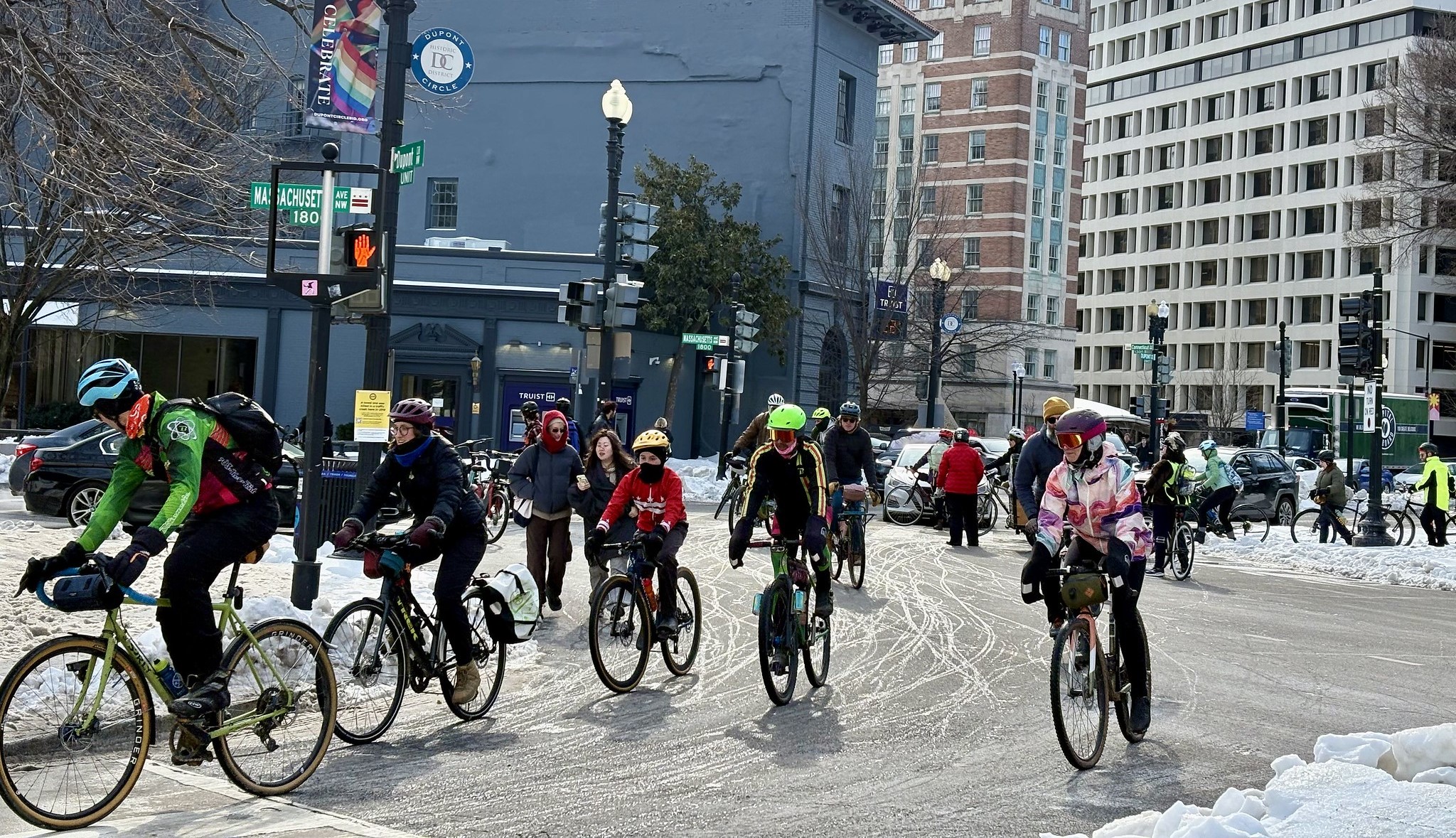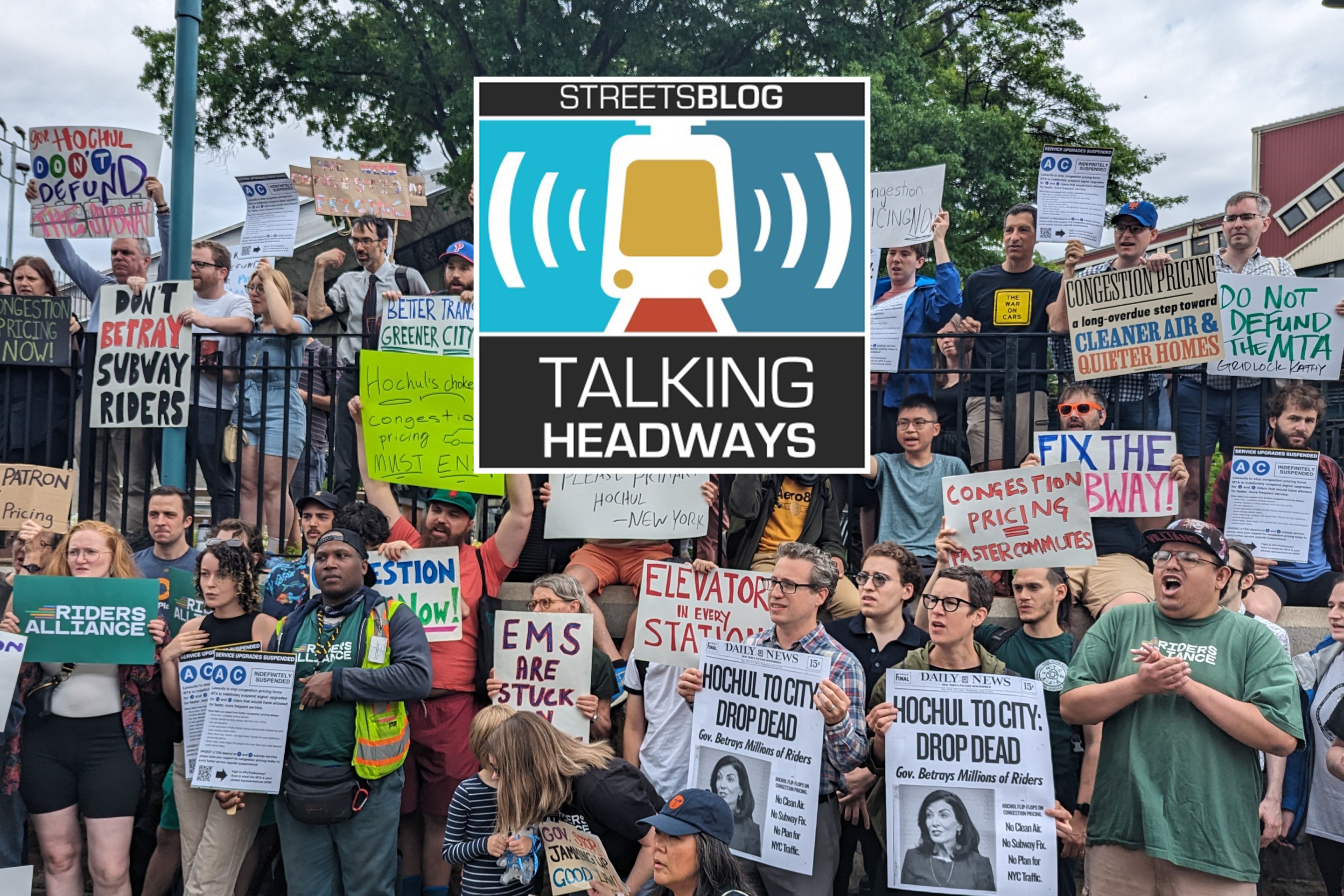Even as gas prices hit historic highs, many Americans aren't driving any less — because so many of their communities are so car-dependent, they don't really have a choice. But what about people who could skip the pump but don't, simply because they're in the habit of driving everywhere they go?
On this episode of The Brake, host Kea Wilson sits down with environmental psychology expert Dr. Ian Walker to talk about why conventional strategies to disincentivize driving don't always work, and why even incentivizing other modes can't always tempt people onto buses, trains, bikes and sidewalks. And then we explore what it will really take to shift Americans' deeply-ingrained travel routines — and why every policymaker needs to understand the irrational, emotional, and deeply human reasons we make our travel choices.
A lot of people are commentating on how dramatic increases in fuel prices don't seem dramatically to be changing behaviour. People are still driving millions of short trips, still sitting with engines idling, etc. So - woo-hoo! - here's a *thread* on the PSYCHOLOGY OF HABITS🎈
— Ian Walker (@ianwalker) June 13, 2022
Tune in here, on Apple Podcasts, or anywhere else you listen, and check out a lightly-edited excerpt of the conversation below.
Kea Wilson: So you have this line on your Twitter thread that says we should “look for the times when people's lives are disrupted and go in hard to encourage [mode] change at that point.” I really want you to unpack that for me; what are some examples of like specific ways we can “go in hard” at those inflection points and actually leverage them to get people to make different travel choices?
Ian Walker: So this is something that's come out very clearly in the research. What it comes down to is: if you're in a situation where your environment — like, for example, walking out of your home in the morning — has become the trigger for certain behavior, you have to move to a different environment [to change that behavior].
So let's say you're in a different house or you've just gotten a different job or something like that. Once the environment has physically changed, your old environment can't trigger the behavior anymore because you're just not in it. If your getting-in-the-car habit is triggered by leaving a certain office, and you suddenly don't work in that office anymore, how can that office possibly trigger [your old] behavior? That’s the optimal time to intervene.
Now can ask yourself: how often does a given person tend to have a disruptive event in their life that fundamentally changes the context in which they live? And it's not that many: moving home, or starting a new job, maybe going to college, having a first child, retirement marriage, long-term illness, bereavement — you come up with maybe 10 or 12, some of which happen more than once. But critically, across a whole population, a lot of people will be going through those at any given time.
Now, what happens when you go through those kinds of transitions is, basically, you have this window of time where you are no longer having, say, your travel behaviors triggered automatically by your situation. You have a reawakening; you have a period of time where once again, you are back at the start of the process, thinking consciously about your behavior. And so you get this window of opportunity where people's decisions, once again, for a brief time, become conscious decisions. And that's great, because that is when you’re most amenable to paying attention to price incentives, or to new information.
Wilson: If you could have the ear of every policymaker in America, what would you tell them to do to act on these insights?
Walker: First, we absolutely fundamentally have to get away from the idea that driving is some sort of rational economic choice. People do not drive because they've weighed up the pros and cons of all their options and said, “Yes, this is the most rational logical decision for me.”
Because if that were the case, what would the world look like? Well, we would not drive if there was an alternative that cost less; we would drive the cheapest car we could drive, and there would be no such thing as a prestige car market; changes to prices would lead to changes in behavior. Now, all of these things don't happen.
I'll give you just a very, very quick anecdotal example that makes the point. Before he died a couple of years ago, my grandfather, who was in his 90s was paying the equivalent of about $5,000 a year for his car insurance — because he was in his 90s, and he crashed a lot. [Laughs.] And he probably used that car five times a year. And I said, “you know, you realize you're paying the equivalent of $1,000 every trip, and for that you could have a chauffeur carry you to the car and have someone massage you as they take you across town.”
And of course he could do that — but he was prepared to pay the equivalent of $1,000 a trip just for the things that go with it. He was paying for the knowledge that he could travel whenever he wants, to avoid the threat to his masculinity of not being able to drive anywhere.
Those are not economic, tangible benefits. Those are much more emotional, intangible things that are hugely important, that we very rarely have the nerve to address when we try and change travel behavior.






